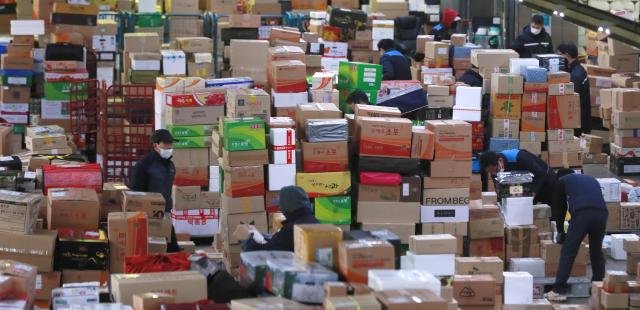
The report attributes this growth to "4C" factors: China-commerce, Competition, Consumer benefit and Cost down.
The influx of ultra-low-priced products from Chinese e-commerce platforms like Ali and Temu has intensified competition, spurring domestic logistics companies to improve their services.
Fierce market competition has led to expanded fulfillment services and faster delivery options, including same-day delivery.
E-commerce companies' membership programs, offering benefits such as free shipping and returns, have further boosted parcel volumes, the report said.

Korea's parcel delivery industry has also benefited from continuous investments in infrastructure and technology.
Companies have integrated scattered logistics facilities and implemented advanced technologies like AI and logistics robots, increasing efficiency and reducing costs.
"Domestic consumers have been able to enjoy faster and more convenient services due to the rapid growth of e-commerce and fierce competition in the delivery market,” Jang Geun-moo, head of the Distribution and Logistics Promotion Institute at the Korea Chamber of Commerce and Industry, said.
“However, as side effects such as disposable containers and excessive packaging are becoming problematic due to increased volume, there is a need for increased interest from the government and companies in spreading circular business models such as recycling and reuse, as well as eco-friendly packaging,” he added.
Copyright ⓒ Aju Press All rights reserved.


View more comments